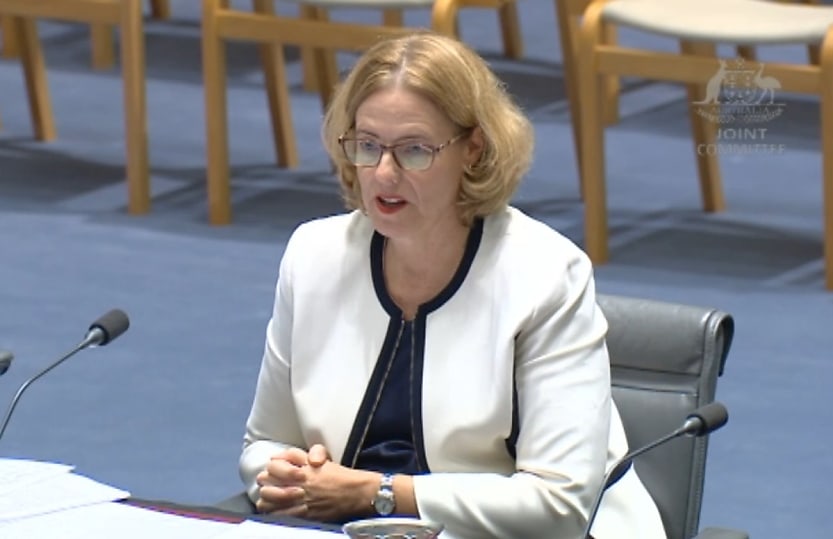PwC ousted acting CEO Kristin Stubbins ‘against her will’, inquiry hears

Senators say her treatment was the “classic story” of a woman being promoted to a leadership role during a crisis, only to be replaced after cleaning up the mess.
PwC International removed Australia acting CEO Kristin Stubbins despite her desire to stay in the role, a concerning example of the firm’s global management “running the show”, the inquiry into the consulting industry has heard.
Members of the parliamentary joint committee on Tuesday also suggested Ms Stubbins' treatment was another example of a woman being elevated to a position of power during a crisis, only to be replaced when they had cleaned up the mess.
When asked about her removal, Ms Stubbins said: “I did want to continue. I wanted to own the outcomes of what had happened. And I felt that I could lead the Australian firm … I was very disappointed."
Ms Stubbins was appointed by the firm’s governance board in May 2023 upon the ousting of then-CEO Tom Seymour to lead the firm through the tax leaks crisis, holding the position for three months before being replaced by UK partner Kevin Burrowes.
She said PwC International chair Bob Moritz informed her over the phone that her tenure would be cut short to make room for Mr Burrowes, PwC International’s long-term pick, without any clear reason.
“I received a phone call from the global chair, Bob Moritz, saying that he was going to recommend to the Australian board that Kevin Burrows be appointed as CEO,” she said.
“I don't recall that there was a clear reason [for that decision]. My perception was that Kevin was very well known, very well respected with the international firm and very experienced.”
Greens senator Barbara Pocock said: “You gave 30 years of your life to PwC. And you had three months as CEO, and you regretfully left that leadership role unexpectedly and against your will.”
Ms Stubbins joined the firm as a graduate in 1995 and rose through the ranks to make audit partner in 2004. She was the firm’s managing partner of assurance when she was elevated to acting CEO until the partnership found a new leader.
During her tenure, she exited nine partners over the scandal, penned an “open letter” of apology and commissioned the Switkowski review into PwC’s governance and culture.
When informed she was not allowed to continue, she announced her resignation from the firm in October.
Members of the committee agreed her treatment by PwC International was a “classic example” of a woman being appointed to a position of power to clean up the mess of others.
“Sadly, that's how often that's the way women often get to the top – when the boys have made big mess of it, the women come in to clean up and then exit somewhat unduly hastily,” Labor senator Deborah O’Neill said.
Ms Pocock likened the situation to what happened to Joan Kirner, who became Victoria’s first female premier during the early 1990s recession.
“Here you were, 30 years of very hard work that ends with you coming in to do a massive, truncated clean-up, which you are dismissed from before you want to be. It’s the classic story … Joan Kirner did it, other women have done it in so many different roles,” she said.
She added that the fact that Ms Stubbins was “set aside” for an “international figure by an international chair” was “very concerning”.
“This a case of PwC International coming in right over the top of PwC Australia, all of its governance structures set aside in a protective operation and control operation, clearly,” she said.
“That is a real concern to me, I must say that international PwC has come in, and they move you out, and is now running the show.”
PwC International is a coordinating body that oversees its member firms and sets standards focussed on areas such as strategy, brand, risk and quality.
Senators like Ms Pocock have questioned the opaque conduct of the international entity after it used its management powers to seize control of the local arm in response to the tax leaks scandal.
During a hearing last month, they accused it of “thumbing its nose at Parliament” by withholding a key report on international partners’ involvement in the tax scandal from the committee, regulators and even its own staff.
About the author

